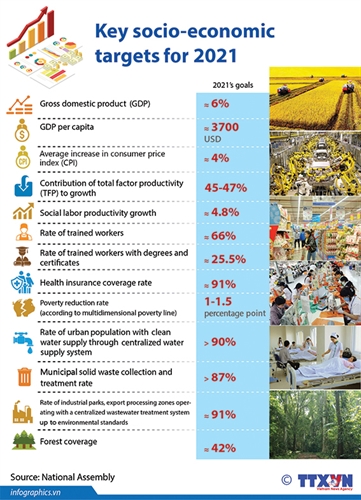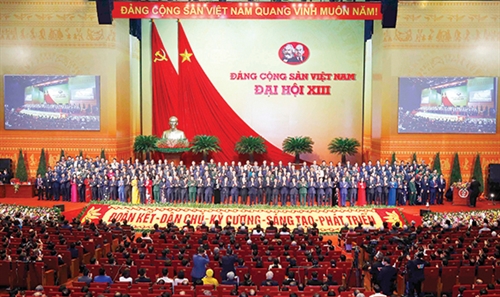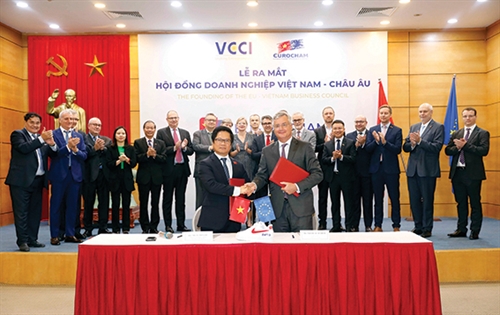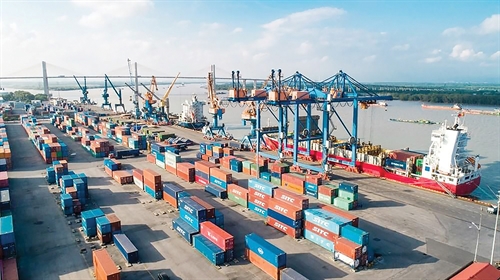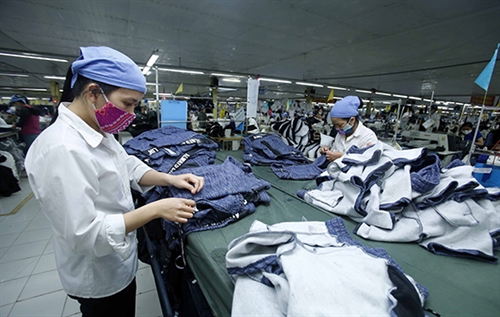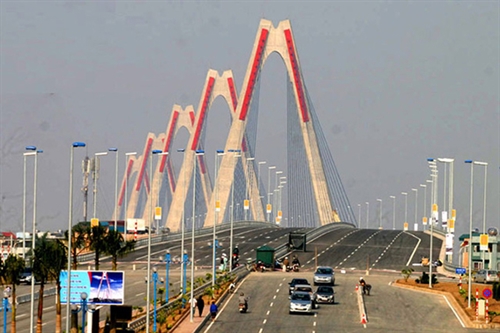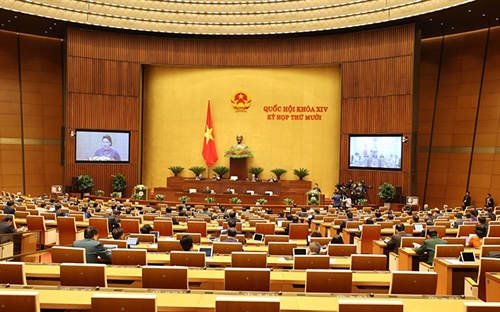The Law on International Agreements was passed by the National Assembly last November. On this occasion, Deputy Minister of Foreign Affairs Le Hoai Trung, Chairman of the Law Drafting Board, granted an interview to the The gioi va Viet Nam (World and Vietnam) newspaper on new regulations as well as solutions for efficient implementation of the Law.
Could you elaborate on the necessity and significance of the promulgation of the Law on International Agreements?
Achievements in foreign affairs and international cooperation over the last time have manifested Vietnam’s policy of diversification and multilateralization of international relations for effective international integration. Vietnam’s status and role in the international arena have been enhanced and there are more and more international partners expressing their wish and willingness to conclude treaties and cooperation agreements with Vietnam.
The formulation of the Law on International Agreements aims first and foremost to further institutionalize the Party’s line and policies and Article 12 of the 2013 Constitution regarding international integration and meet domestic agencies’ and organizations’ need to conclude international agreements.
The Law on International Agreements will come into force on July 1 this year and replace the 2007 Ordinance on Conclusion and Implementation of International Agreements, which has, over the past 10 years, served as an effective legal basis for the conclusion and implementation of international agreements through many channels, in many fields and with many different foreign partners.
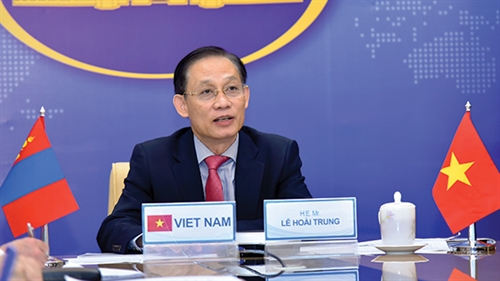 |
| Deputy Minister of Foreign Affairs Le Hoai Trung |
The conclusion and implementation of international agreements during the past time have promoted international cooperation between Vietnamese entities and foreign partners, helping not only promote international friendship and cooperation but also solve important and complicated issues such as protection of sea and island sovereignty, participation in the United Nations peacekeeping missions, and combat against transnational crimes. Hence, we have managed to take advantage of foreign partners’ support to maintain a peaceful and stable environment and carry out numerous socio-economic programs, including those on hunger eradication and poverty reduction, remediation of disasters and climate change response.
Moreover, the 2007 Ordinance has revealed some shortcomings prompted from issues newly arising in realities or changes of relevant legal provisions, giving rise to the need to further improve regulations on international agreements.
Could you tell us about new regulations of the Law on International Agreements?
The Law on International Agreements is expected to solve shortcomings arising in the implementation of the 2007 Ordinance through translating into legislation policies concerning the conclusion and implementation of international agreements. Specifically, the Law clearly provides contents and nature of international agreements, distinguishing them from treaties as well as civil, economic, financial, and investment contracts and transactions and on that basis, identifying regulations applicable to agreements of different types. The Law also increases the number of subjects concluding international agreements in conformity with international cooperation policy, need and reality; defines and upholds responsibilities of central- and provincial-level state agencies in state management of conclusion and implementation of international agreements; and simplifies the order and procedures for conclusion and implementation of international agreements.
The Law on International Agreements has 52 articles arranged in seven chapters with some new contents of significant importance.
Firstly, the Law adds the number of subjects concluding international agreements. While the 2007 Ordinance restricts its scope of regulation to central-level state agencies, provincial-level agencies and central bodies of organizations, the Law covers also signatories being general departments and departments under ministries and ministerial-level agencies; specialized agencies of provincial-level People’s Committees, district-level People’s Committees; commune-level People’s Committees in border areas; and provincial-level bodies of socio-political organizations, socio-political-professional organizations, social organizations, and socio-professional organizations. The conclusion of agreements other than treaties in the name of the State or Government under the 2016 Law on Treaties is also governed by this Law.
Secondly, as the Law rules the conclusion of agreements in the name of the State and Government, that are concurrently signatories of treaties, it adds provisions specifying the nature of international agreements to distinguish them from treaties as well as assorted contracts and agreements.
Thirdly, the Law has a new chapter on fast-track procedures, specifying criteria and conditions for application in urgent cases serving political or external requirements for the purpose of emergency relief or remedy of consequences of disasters, catastrophes and epidemics.
Fourthly, the Law adds provisions on formalities for conclusion of international agreements in the name of multiple agencies and organizations, international agreements concerning national defense, security or investment, requiring agencies and organizations to consult the Ministries of Public Security, National Defense, and Planning and Investment in order to ensure the stricter management of such international agreements.
There are concerns about the expansion of the scope of signatory authorities to cover also commune-level People’s Committees. As the head of the Drafting Board of the Law on International Agreements, could you explain the reason behind such move as well as management mechanisms to ensure the coherence and effectiveness of international agreements at the commune level?
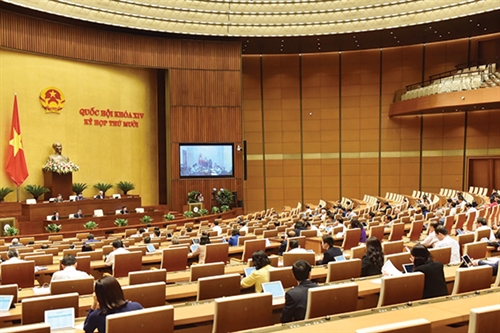 |
| National Assembly deputies discuss the draft Law on International Agreements at a plenary session on October 22, 2020__Photo: VGP/Nhat Bac |
International cooperation is always accompanied with latent sensitive issues regarding political and external affairs, national defense and public security, requiring advisory agencies and units and signatory authorities to possess a certain capacity. Hence, needless to say, the expansion of the scope of signatory authorities should be carefully considered. In the process of formulation of the Law, the Government thoroughly discussed and weighed this issue. In addition, we should acknowledge the need for and benefits brought about by, the conclusion and implementation of these documents.
In fact, the conclusion of international cooperation documents is carried out at all levels, from central to local. Especially, conclusion of cooperation agreements by border communes has contributed to strengthening friendship and cooperation, tightening solidarity, ensuring security and order in border areas, promoting people-to-people diplomacy, cultural exchange and socio-economic development cooperation in border areas, thus facilitating the implementation of treaties on border issues between Vietnam and neighboring countries.
When formulating the Law on International Agreements, it was difficult to identify how to properly implement the Party’s line and policies on deep international integration, enhance people-to-people diplomacy in the new situation, and improve the quality of international agreements by including international agreements of this type into the governing scope of the Law so as to create a basis for management and improvement of accountability of central- and local-level state management agencies.
To meet practical needs for conclusion of international cooperation documents of commune-level People’s Committees and requirements for international cooperation, the Law expands the scope of signatory authorities to cover commune-level People’s Committees in border areas. At the same time, in order to suit capacity of commune-level People’s Committees and meet political, diplomatic, national defense and public security requirements, the Law restricts the contents of international agreements which commune-level People Committees are permitted to conclude, e.g., exchange, sharing of information, town twinning, and cooperation in border management in accordance with relevant treaties to which Vietnam is a contracting party. Provincial-level People’s Committee chairpersons will decide on, permit, and be held responsible for, the conclusion of international agreements by commune-level People’s Committees in border areas.
The formulation of international agreements in the name of commune-level People’s Committees in border areas must also comply with the law-prescribed order and procedures. The Government will issue a decree detailing this issue.
The Law on International Agreements will come into force this July. What should the Government and Ministry of Foreign Affairs do to facilitate the implementation of the Law?
The Law on International Agreements will take effect on July 1. The Law assigns the Government to detail the conclusion and implementation of international agreements in the name of general departments and departments under ministries and ministerial-level agencies; specialized agencies of provincial-level People’s Committees; district-level People’s Committees; and commune-level People’s Committees in border areas and provincial-level bodies of organizations.
In the coming time, the Ministry of Foreign Affairs will draft a decree on such issue and submit it to the Government for promulgation in time. From now to July 1, there is not much time left but the Ministry of Foreign Affairs will work hardly and coordinate closely with related central and local agencies and organizations and make use of outcomes of researches conducted in the process of formulating the Law so as to complete the formulation of the decree on schedule and with the best quality.
The Ministry of Foreign Affairs, in the capacity as the agency that is held responsible before the Government for state management of international agreements will, in the time to come, carry out the dissemination and education of the law on conclusion and implementation of international agreements, hold refresher training courses and compile documents guiding the order of conclusion and implementation of international agreements to meet the needs of agencies and organizations nationwide, especially those empowered to conclude international agreements for the first time.-
